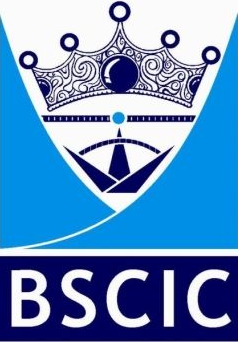
Overview - The EMS Lead Auditor Course for ISO 14001:2015 provides an essential foundation of knowledge and a hands-on understanding of environmental management systems (EMS). Participants in the course are introduced to the principles, requirements, processes, tools, and techniques related to conducting lead audits on organizational compliance with this internationally recognized standard. Through lectures, interactive discussions, and exercises as well as case scenarios, students become prepared to demonstrate professional auditing competence required by international standards organizations to meet applicable certification criteria. Upon successfully completing this EMS Training Audit Program participants will be accredited fully compliant professionals – able to conduct sustained integral audits of Environmental Management Systems that adhere closely to key elements set out in ISO 14001: 2015.
Objectives - Explain the purpose of an environmental management system, its standards, management system audits, third-party certification, and the business benefits of better environmental management system performance.
- Describe an auditor's role and responsibilities in planning, conducting, reporting, and following up on an audit of an environmental management system in accordance with ISO 19011 and ISO/IEC 17021-1, if applicable.
- Provide participants with an overview of EMS standards and requirements
- Understand the principles and practices related to environmental management systems
- Learn best practices for planning, managing, auditing, and reporting on EMS results
- Be equipped with knowledge of ISO 14001:2015 Lead Auditor certification process.
- Gain an understanding of the legal aspects related to EMS.
- Schedule, conduct, report on, and follow up on an audit of an environmental management system to determine compliance (or lack thereof) with ISO 14001, ISO 19011, and ISO/IEC 17021-1, as appropriate.

How would taking this course benefit my Career?
- Understand the environmental management system (EMS) requirements as specified in ISO 14001:2015 and its Annex SL structure.
- Learn how to audit an EMS according to ISO 19011 guidelines on audit standards, methodology & techniques.
- Develop a better understanding of legal compliance obligations related to the environment based on regional legislation.
- Gain the knowledge required for performing 2nd Party audits or acting as part of an Audit Team conducting 3rd party certification audits for Environmental Management Systems.
- Enhance leadership skills needed for undertaking successful works associated with conformance assessment activities ensuring legality and conformity with regulatory body’s requirement measures.
FAQs:
WHO SHOULD ATTEND?
- Quality executives or managers
- Representatives of the management
- Internal EMS auditors currently employed
- EMS personnel working as ISO Consultants who want to pursue careers in EMS auditing, such as those with a - B.Tech., M.Tech., BSC, MSC, MCA, or MBA.
- Professionals in total quality & environmental management
Content of the ISO 14001:2015 EMS Lead Auditor training course
- The requirements of the ISO 14001:2015 Standard for auditing, the ISO 14000 standards series, and the auditing process approach, including the PDCA Cycle;
- Auditing the documentation for environmental management systems and the requirements of ISO 19011;
- Auditor Responsibilities and Auditing Roles;
- Checklists, non-conformance reports, audit reporting, final team meeting, and follow-up are all components of audit planning.
- Exercises, case studies, and records of verification and audit.
- Auditor registration, accreditation, and certification; course examination
Course Duration:
40 Hours + 2 Hrs 15 Minutes Examination (Non English speaking Learner)
Course Structure:
5 Days Course, typically starts at 9:30 A.M. and ends by 6:30 P.M (IST). Presentations, Examples, Exercises requiring group work, Brainstorming, Readings, and Sharing of Practical Experiences are all included in the course. A 45-minute lunch break each day.
